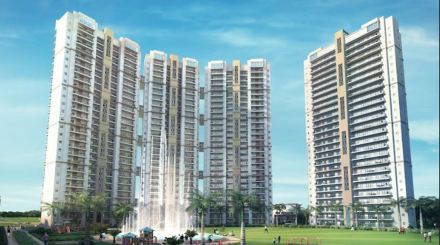Urban development has been playing a pivotal role in shaping the future of communities and property values in the evolving real estate market. As cities expand and population grows, embracing innovative and sustainable approaches to create vibrant, livable spaces has become crucial. One region that has witnessed remarkable transformation is Noida, one of the fastest developing regions in Delhi-NCR over the years. Its strategic location, quick access to the national capital, robust infrastructure, and connectivity have fueled its growth and attracted significant investment.
Situated in the National Capital Region of India, Noida has evolved from being a mere suburb to a dynamic urban centre with remarkable infrastructures inviting investments and visitors from across the nation. The region’s remarkable progress can be attributed to a series of major urban development projects that have revolutionised the landscape and improved the quality of life for its residents. These initiatives have enhanced the infrastructure and significantly impacted property values, making Noida an attractive investment destination.
One of the primary factors driving the rapid development of Noida is its well-planned and extensive infrastructure. The region has witnessed the emergence of modern residential and commercial complexes, state-of-the-art educational institutions, healthcare facilities, and recreational spaces. These developments have created a thriving environment for its residents and attracted businesses and industries, leading to job creation and economic growth.
Also Read: LANDLORD’S DILEMMA: Tenant not paying rent? Know your options
Connectivity has also been a crucial factor behind Noida’s development. The region has witnessed the construction of major transportation projects that have improved accessibility and eased commuting for its residents. The upcoming Jewar Airport, for instance, is set to be a game-changer for Noida and the entire National Capital Region. With its proximity to Noida, Greater Noida, Delhi, Gurugram, Faridabad, etc., the airport is expected to boost tourism, trade, and investment, further accelerating the region’s growth. The airport’s presence will create new job opportunities and enhance the demand for commercial and residential properties in Noida.
In addition to the airport, the metro rail network has played a pivotal role in transforming Noida’s connectivity. The extension of the Delhi Metro’s Blue Line to Noida has greatly facilitated travel between the region and the national capital. This seamless connectivity has made commuting convenient and accelerated the growth of residential and commercial projects along the metro corridor. Noida’s efficient metro network has become a lifeline for its residents, connecting them to various parts of the city and enhancing their overall quality of life as well as the working population that commutes across the city every day.
Furthermore, the construction of expressways has significantly improved the connectivity of Noida with other regions. The Noida-Greater Noida Expressway and the Yamuna Expressway have reduced travel time and enhanced accessibility to neighbouring cities, including Delhi and Agra. These expressways have become vital modes of transportation, facilitating the movement of goods and people and driving economic growth in the region. The improved connectivity has attracted businesses and industries and heightened the demand for residential properties, resulting in increased property values.
The transformation of Noida serves as a testament to the power of well-planned urban development projects. The region’s strategic location, robust infrastructure, and connectivity have made it an attractive destination for investors and residents. As Noida continues to grow and evolve, it is essential to prioritise sustainable development practices that preserve the environment, promote inclusivity, and ensure its residents’ high quality of life.
(By Sanjay Sharma, Director, SKA group. Views are personal)
